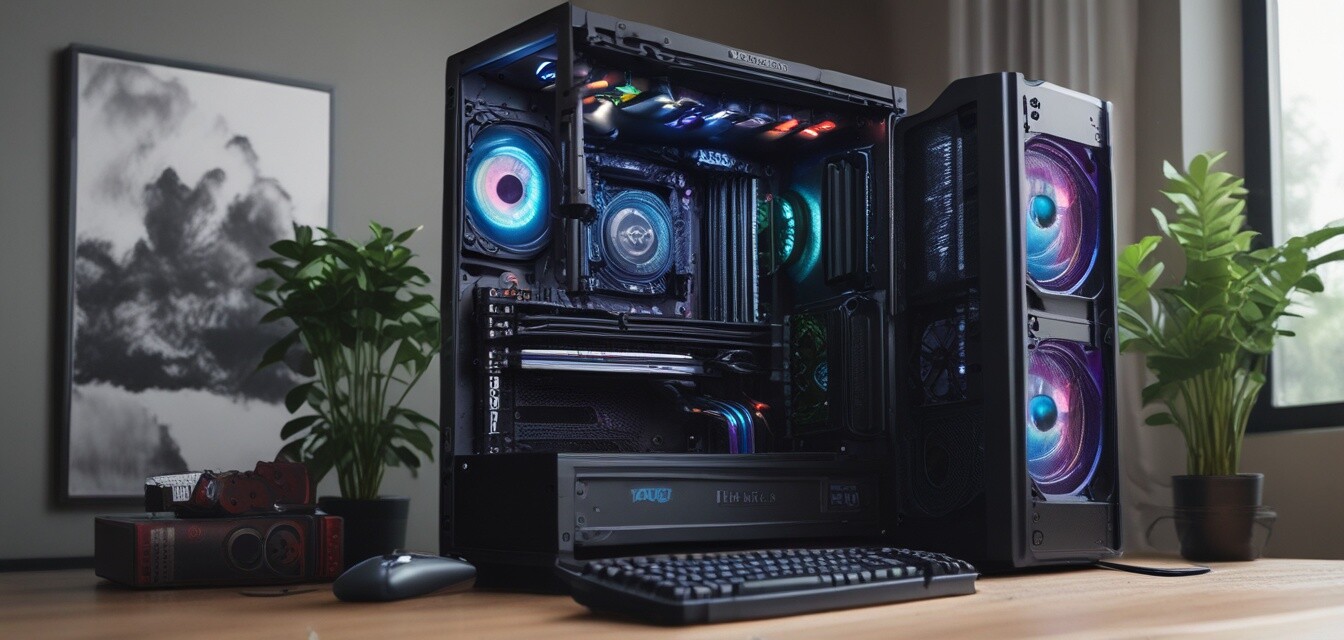
The Complete Guide to Custom Gaming PCs
Key Takeaways
- Custom gaming PCs provide flexibility in performance and aesthetics.
- Understanding key components is crucial for building or buying a gaming PC.
- Budgeting and defining your gaming needs will guide your decisions.
- Choosing high-quality components ensures longevity and better performance.
- Consider future upgrades to extend the life of your gaming setup.
As the gaming world evolves, so do the demands on our gaming setups. Whether you’re a casual player or a dedicated pro, having a well-assembled custom gaming PC can significantly enhance your gaming experience. In this comprehensive guide, we will help you navigate the process of building or buying a custom gaming PC tailored to your specific preferences and gaming needs.
Why Choose a Custom Gaming PC?
Custom gaming PCs allow you to choose and modify components according to your gaming style, budget, and personal aesthetic. Here are a few advantages:
- Personalization: Select parts that meet your specific performance needs.
- Cost-Effective: Build a PC that gives you the best value for your money.
- Upgrade Potential: Easily swap components to keep your PC up-to-date.
Understanding Key Components
Before diving into building or purchasing your custom gaming PC, it’s essential to understand the key components that will contribute to your system's overall performance.
| Component | Description | Importance |
|---|---|---|
| CPU (Processor) | The brain of the PC, responsible for executing instructions. | Crucial for overall system speed and performance. |
| GPU (Graphics Card) | Manages and renders images, animations, and video. | Essential for high-quality gaming visuals. |
| Motherboard | The main circuit board that connects all components. | Determines compatibility between components. |
| RAM (Memory) | Temporary storage that helps run programs efficiently. | Affects multitasking and game loading times. |
| Storage (SSD/HDD) | Where games and files are stored. | Influences load times and system startup speed. |
| Power Supply (PSU) | Provides power to all components. | Essential for stability and performance. |
| Casing | The physical enclosure that houses all components. | Enables airflow and aesthetics of your setup. |
Building Your Custom Gaming PC
Building your own gaming PC can be a rewarding experience. Here are the steps to guide you through the process:
- Set Your Budget: Decide how much you are willing to spend.
- Research Components: Use reliable sources to find the components that fit your budget and performance needs.
- Purchase Parts: Buy your selected components from reputable retailers.
- Assemble the PC: Follow guides and videos to put together your components carefully.
- Install Software: Install the operating system and essential applications.
- Test the System: Make sure everything is running smoothly before diving into gaming.
Buying a Pre-Built Gaming PC
If building isn't for you, buying a pre-built gaming PC can save time and ensure compatibility. Here’s what to consider when searching:
- Check reviews from credible sources.
- Compare specifications to ensure they meet your gaming requirements.
- Look for customer service and warranty options.
Budgeting for Your Gaming PC
Budgeting is a crucial part of the custom gaming PC experience. Here are some popular budget categories:
| Budget Category | Approximate Cost | Performance Tier |
|---|---|---|
| Entry-Level | $500 - $800 | Basic gaming on low to medium settings. |
| Mid-Range | $800 - $1500 | Good performance on medium to high settings. |
| High-End | $1500 and up | Exceptional performance at high to ultra settings. |
Key Upgrades for Better Performance
To enhance the longevity and performance of your PC, consider the following upgrades:
- Increase RAM for better multitasking.
- Upgrade to an SSD for faster load times.
- Invest in a better GPU to improve visual performance.
Conclusion
Custom gaming PCs offer a unique way to tailor your gaming experience. Understanding the components, setting a budget, and knowing how to assemble or buy correctly will ensure that your gaming setup meets your specific needs. For more related insights, check out our Buying Guides section to explore more about gaming computer gear.
Pros
- Enhanced personalization options
- Potential for higher quality performance
- Flexibility in future upgrades
Cons
- Initial setup may be time-consuming
- Requires some technical knowledge
- Can be more expensive than pre-built options
Further Reading
For more information on specific gaming gear categories, visit some of our related pages:
